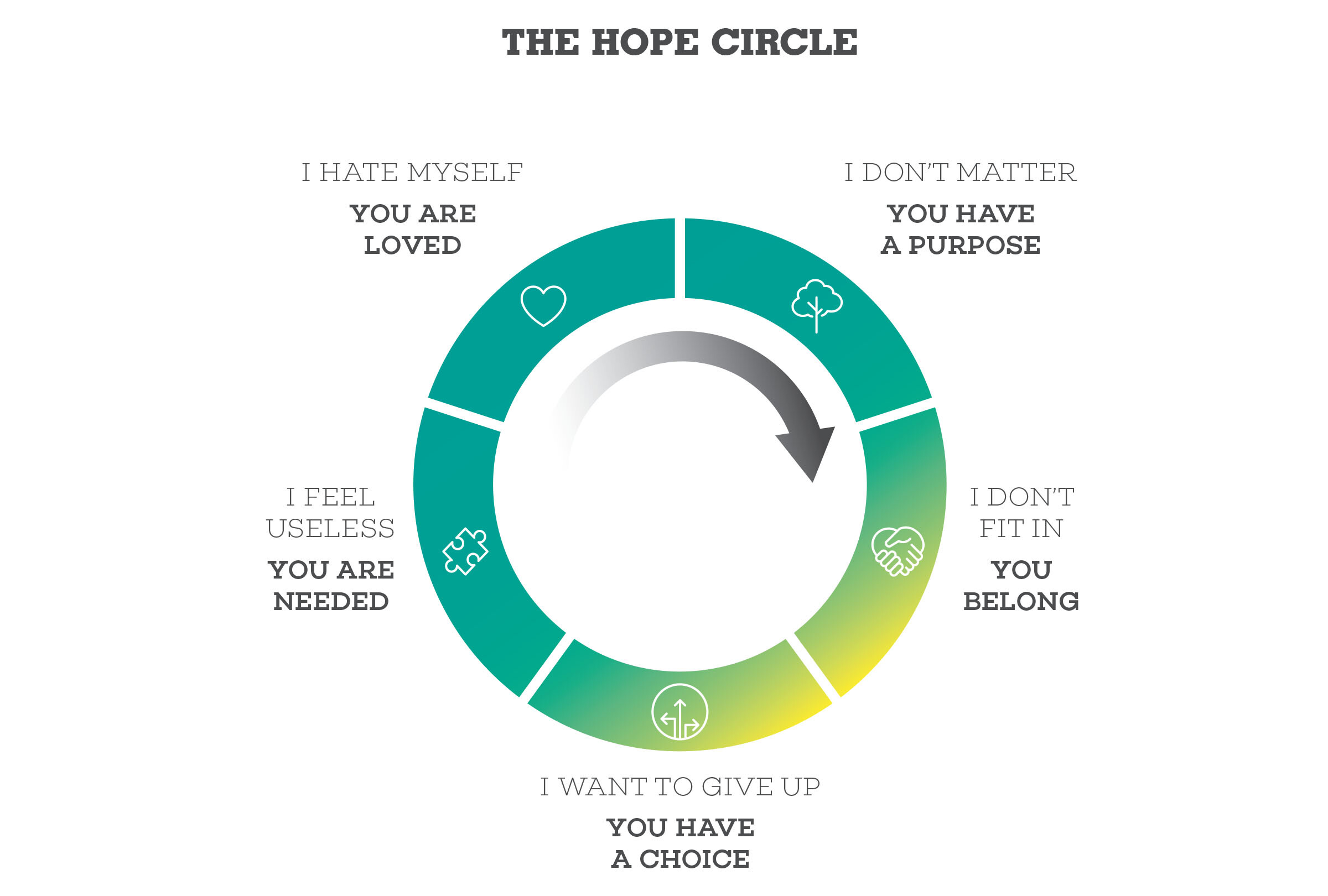Hope Circle
Have you ever spent any time thinking about your inner voice?
We each have an inner voice that talks to us in our minds throughout the day. It takes the form of comments we make to ourselves, like, “Good job!” or “Whew, that was a close call” or “Why in the world did I say that?” Some people are highly aware of this inner voice and constant inner monologue, while others barely notice it. Some people are wired in such a way that their inner voice is usually kind or helpful, or at least not harsh, while others are more likely to hear self-condemning or self-critical messages. These differences can be related to innate personality, as well as the variety of our life experiences.
Talking to ourselves is a normal part of being human. God has made human beings with the intellectual capacity to consciously interact with the world around us, forming judgments, opinions, and beliefs about what we encounter, and, from there, to intentionally act and behave accordingly. When we are mentally healthy, we are aware of ourselves as independent, unique beings who are able to have private thoughts. While we are susceptible to the opinions and beliefs of others who are important to us and often shift our own opinions or beliefs to align with theirs, we know they cannot directly affect our thoughts.
The Bible says that God, our Creator, is the only being besides us who has constant access to our minds. He wants to influence our thoughts and opinions so that they accurately reflect his Son, Jesus, and so he speaks to us through his Word and through prayer. How do we know what God’s voice sounds like? The Bible tells us over and over again: God’s voice is not harsh, loud, or condemning, even when he offers correction (Nehemiah 9:17). His words are kind. His voice is loving. A smile lights his face as he tells of how valued we are, that we were worth the sacrifice of his Son. In fact, the Bible says God even sings to us! Zephaniah 3:17 says God sings his loving thoughts over us to quiet our fears. If our inner voice is harsh and condemning, that voice is not God’s.
The Bible also teaches that there is evil in the world because of the presence of Satan. Like God, he wants to influence our thoughts and behavior, but, unlike God, he does not want us to thrive. He suggests ideas in our thoughts and minds throughout the day, and these negative messages can shape the way we see ourselves, God, the world, and our problems. But Satan doesn’t tell us the truth about ourselves; he lies. And the worst part about his lies? They can cause us to lose hope for our future.
Because what we believe to be true about ourselves is vitally important to our mental and physical well-being and our ability to hold onto hope, we’ve created The Hope Circle. This diagram is a tool to remind us how to challenge the negative thoughts from our inner voice that might be threatening our hope.

The Hope Circle names five negative statements almost all of us have said about ourselves at one time or another and then offers the opposite of each: the truth of what God really says. For each lie we might currently believe, we’ll find there is a truthful statement we can claim.
Mental health challenges and painful life circumstances can beat you up and leave you saying to yourself:
“I hate myself.”
“I don’t matter.”
“I don’t fit in.”
“I want to give up.”
“I feel useless.”
Yet to each of these thoughts, there is a hopeful affirmation based on God’s truth in the Bible:
Your inner voice might whisper, “I hate myself,”
but the God of hope says, “You are loved.”
The enemy will plant thoughts that make you say, “I don’t matter,”
but the God of hope says, “You have a purpose.”
Your feelings may make you want to say, “I don’t fit in,”
but the God of hope says, “You belong.”
The ongoing pain of depression might cause you to say, “I want to give up,”
but the God of hope says, “You have a choice.”
And your inner voice might say, “I feel useless,”
but the God of hope says, “You are needed.”
These affirmations become essential concepts to remember when things get rough. You push back the enemy’s negative lies with the truths God’s Word has spoken into your heart. As you go through this experiential journal, you’re going to learn how to hear and believe God’s kind, loving voice more than the critical inner voice, and that will begin to shape hope into a reality you can hold onto.
*Taken from Journey Toward Hope: A Guided Experience.